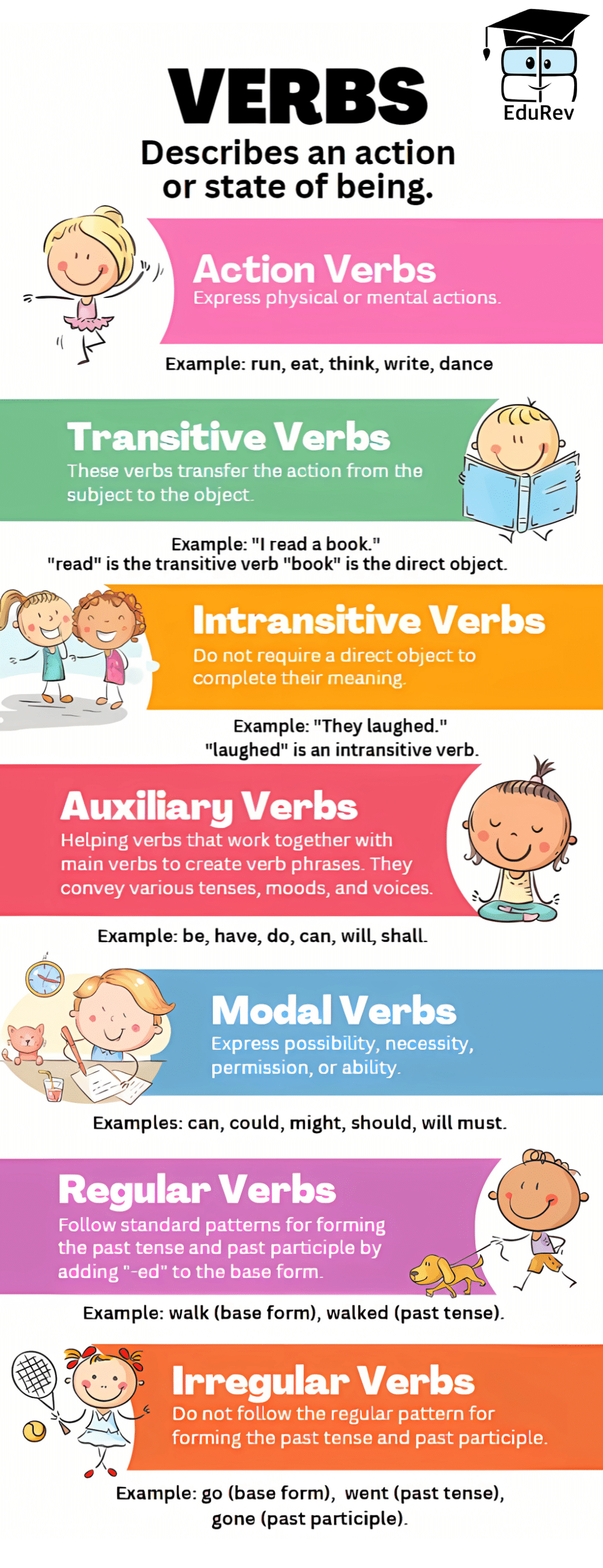Class 5 Exam > Class 5 Notes > English Grammar Class 5 > Learning Poster: Verb And Tense
Learning Poster: Verb And Tense | English Grammar Class 5 PDF Download

The document Learning Poster: Verb And Tense | English Grammar Class 5 is a part of the Class 5 Course English Grammar Class 5.
All you need of Class 5 at this link: Class 5
|
37 videos|529 docs|53 tests
|
FAQs on Learning Poster: Verb And Tense - English Grammar Class 5
| 1. What are verbs and why are they important in English? |  |
Ans. Verbs are words that describe actions, states, or occurrences. They are essential in English because they help to convey what the subject of a sentence is doing or experiencing. Without verbs, sentences would lack meaning and clarity.
| 2. What is the difference between regular and irregular verbs? |  |
Ans. Regular verbs follow a consistent pattern when forming their past tense and past participle by adding '-ed' (e.g., 'play' becomes 'played'). Irregular verbs, on the other hand, do not follow this pattern and change form in unpredictable ways (e.g., 'go' becomes 'went').
| 3. How do I correctly use the present tense in sentences? |  |
Ans. The present tense is used to describe current actions or habitual activities. For regular verbs, the base form is used for subjects in the first and second person (I/you) while adding an '-s' for third person singular (he/she/it). For example: "I play soccer" vs. "He plays soccer."
| 4. What are the main types of past tense used in English? |  |
Ans. The main types of past tense in English are the simple past, which describes completed actions (e.g., "I walked"), and the past continuous, which describes ongoing actions in the past (e.g., "I was walking"). There is also the present perfect tense, which indicates an action that occurred at an unspecified time (e.g., "I have walked").
| 5. Can you explain the future tense and its forms? |  |
Ans. The future tense is used to describe actions that will happen later. It can be expressed in several ways, including the simple future (using 'will' or 'shall', e.g., "I will walk"), the future continuous (e.g., "I will be walking"), and the future perfect (e.g., "I will have walked"), indicating actions that will be completed before a certain point in the future.
Related Searches
















